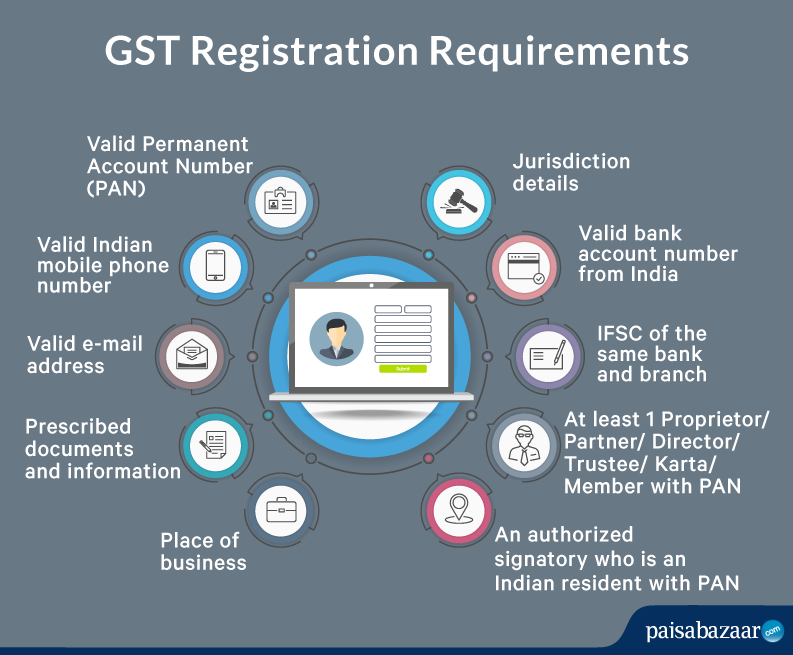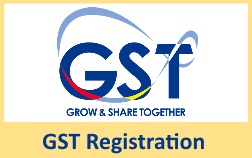Top Tips for Getting Your GST Registration Done Today in Singapore
Top Tips for Getting Your GST Registration Done Today in Singapore
Blog Article
Optimizing Your Service Prospective With Proper GST Registration: Trick Methods and Ideal Practices
In the world of company procedures, the relevance of appropriate GST registration can not be overemphasized. By navigating the intricate landscape of Product and Services Tax obligation with experienced strategies and adherence to finest methods, organizations can open a realm of possibilities to grow and expand. The key to truly optimizing the prospective lies in the calculated use of GST devices such as input tax obligation debt.
Comprehending GST Essentials
Exploring the essential principles of Product and Provider Tax (GST) is necessary for companies aiming to navigate the complex landscape of modern taxation systems. GST is a consumption-based tax that is levied on the supply of goods and solutions. It has actually replaced a plethora of indirect tax obligations, enhancing the taxation framework and promoting a unified market across India. Under GST, businesses need to recognize the principle of input tax obligation credit scores, which enables them to assert debt for taxes paid on their inputs. This mechanism assists stop plunging effects and advertises effectiveness in the tax system.
Moreover, businesses should comprehend the distinction in between CGST (Central Product and Solutions Tax Obligation) and SGST (State Item and Services Tax) Furthermore, IGST (Integrated Item and Services Tax) uses to inter-state transactions, guaranteeing smooth tax credit history throughout the supply chain.
Picking the Right Enrollment Kind
Optimizing Service Compliance with Strategic GST Registration Choice is important for businesses seeking to run efficiently within the GST framework (Get your GST registration done today in Singapore). Choosing the ideal registration kind is an important decision that can influence various elements of a business, consisting of conformity demands, tax obligation obligation, and operational versatility
Routine registration is ideal for companies with a yearly turn over exceeding the threshold limitation, enabling them to accumulate taxes from consumers and claim input tax credits. On the various other hand, the Structure plan is developed for small companies with a turn over listed below the defined limit, providing reduced tax rates yet with restrictions on input tax obligation credit history claims.
Maintaining Accurate Records
Establishing precise record-keeping techniques is vital for companies to guarantee compliance with GST guidelines and track monetary transactions properly. Preserving exact documents not only assists in seamless GST declaring however likewise aids in monitoring money flow, analyzing service efficiency, and preparing for audits.
Routine settlement of financial records with financial institution declarations and GST returns is vital to recognize any kind of mistakes or discrepancies without delay. Organizations need to also maintain all relevant documents, such as agreements, invoices, and receipts, to substantiate their recorded transactions. By preserving an efficient record-keeping system, businesses can not just follow GST regulations however also obtain important understandings into their economic wellness and make informed decisions to drive development and success.
Leveraging Input Tax Obligation Credit
Using input tax credit successfully can considerably benefit companies by decreasing their tax liability and boosting cash money circulation administration. Input tax credit report allows services to balance out the tax obligation they have paid on inputs against the tax liability on results. By leveraging input tax credit rating, services can efficiently reduce the general tax obligation concern on their solutions or goods, thus enhancing their competitiveness on the market.
One key method to make best use of input tax credit history is to make certain meticulous documents and compliance with GST regulations. Maintaining precise records of all input taxes paid is important for claiming the credit scores without delay and properly - Get your GST registration done today in Singapore. Services should routinely reconcile their input tax credit history asserts with her latest blog the purchases made to identify any kind of discrepancies and remedy them without delay
One more finest method is to keep track of adjustments in GST legislations and laws to stay notified concerning qualified input tax obligation credit scores groups and rates. Involving with tax obligation specialists or attending normal training sessions can assist companies stay updated on the current advancements and maximize their input tax debt claims. Inevitably, by effectively leveraging input tax obligation credit rating, businesses can improve their monetary efficiency and competition in the marketplace.

Abiding With Filing Target Dates
Adherence to filing due dates is a crucial aspect of maintaining conformity with GST guidelines for organizations. Timely submission of GST returns guarantees that services meet their tax obligation obligations and avoid fines or fines for late declaring - Get your GST registration done today in Singapore. It is vital for businesses to monitor the different GST filing deadlines based upon their registration kind, whether monthly, quarterly, or yearly, to prevent any lapses in conformity
To abide by filing due dates effectively, organizations should develop robust inner processes for record-keeping and reconciliation of financial information. Using accounting software or involving specialist accountants can enhance the procedure and aid ensure prompt and exact our website submissions. Additionally, establishing reminders or alerts for upcoming filing deadlines can help companies remain organized and avoid last-minute rushes that may cause errors.
Failing to meet GST filing deadlines can lead to consequences such as passion costs on superior tax obligation quantities or also lawful activity in severe instances. By prioritizing compliance with filing due dates, organizations can show good administration practices and preserve a favorable relationship with tax obligation authorities, fostering trust fund and reputation within business ecosystem.

Verdict
In conclusion, making best use of organization potential through appropriate GST registration entails understanding the basics of GST, selecting the proper enrollment type, maintaining specific records, leveraging input tax obligation credit scores, and meeting declaring target dates. By complying with these vital methods and ideal practices, businesses can ensure conformity with GST guidelines and optimize their economic effectiveness.
Under GST, services require to understand the principle of input tax obligation credit scores, which enables them to declare credit history for taxes paid on their inputs. Normal enrollment is ideal for companies with a yearly turn over exceeding the threshold restriction, allowing them to collect taxes from consumers and insurance claim input tax obligation credit scores. Input tax credit history enables companies to counter the tax they have paid on inputs against the tax obligation on outputs. By leveraging input tax credit, organizations can effectively reduce the total tax obligation burden on their goods or solutions, therefore link enhancing their competitiveness in the market.
Engaging with tax professionals or attending regular training sessions can assist businesses stay updated on the newest advancements and optimize their input tax credit scores cases.
Report this page